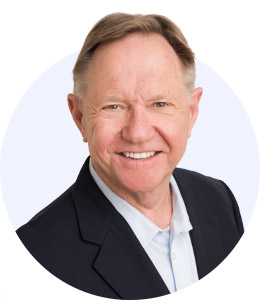Is it possible for a company to not achieve key goals while most if not all of those in leadership receive a positive yearly evaluation? I have seen this happen over the years. It brings up some questions: How can it be that there is such a disconnect between a leader’s evaluation and their actual performance? And why aren’t leaders moving the needle on organizational goals?
The answer typically comes down to one of two issues (and often both). One, the company’s evaluation system may be off. Two, there is a lack of investment in providing skill development to those in a leadership role. And if development is being provided, it may need to shift to be more effective.
It’s not fair to give a person a positive evaluation when they are not hitting the goals that matter to the organization. It creates frustration with the leaders who know they are performing better than others, yet are receiving the same evaluation results. (So much for a top leader’s preaching accountability!)
Having an effective leader evaluation system is vital. A key is to have measurable outcomes. Items such as improve, increase, or decrease work only if they are connected to a measurable outcome such as “Decrease first 90-day employee turnover to under 14 percent.”
Setting objective goals is step one. The next step is the value step. Is the organization investing in skill building so people have the skills to achieve the set outcome?
In my book Results That Last: Hardwiring Behaviors That Will Take Your Company to the Top, Chapter 1 is titled “Up or Out.” History has taught me some people misinterpreted the meaning. While I still believe some people need to leave the organization or their role, exiting a person should take place only after they have been provided skill building and performance coaching.
Since Covid, the number of new people in leadership roles is significantly higher than it was pre-Covid. This means organizations have leaders with very different years of experience. The leader who has been in the role for years is in a much different place from the leader who is relatively new. Considering the variation in skills and experience, it makes sense to provide individualized skill development, in addition to the normal large group sessions.
That’s why Healthcare Plus Solutions Group® created the Precision Leader Development™ system. We assess where a leader is in leadership skills and then create an individualized development plan. The plan considers the individual’s needs and learning style. It is important to work on one or two skills at a time. This makes the skill building doable. The feedback from hundreds of experiences is that this approach reduces leader anxiety. This leads to retention. A study showed that 92 percent of those in a leader role are more likely to stay if they feel invested in.
This does not mean every person in leadership will achieve the outcomes needed for the role they are in. Some will not. However, most will, and those who do not will understand they were invested in. And their leader will know they did everything they could for the person. At times, people are put into roles that are over their skill set, and even with skill building, it continues to not be a good fit.
Suggestions:
- Evaluate the current leadership (manager) evaluation tool being used. Are the goals objective and measurable? If not, look at changing the tool being used.
- Create an individualized development plan for everyone in leadership. We suggest a tool called OSAR. It starts with an objective Outcome (O). Sis for the Skill the person needs to achieve the outcome. Ais for what Actions are needed by the leader to achieve the outcome. R represents the Resources the leader can access to build their skill set to achieve the outcome.
Providing clarity of goals for each leader, combined with the opportunity to achieve the skills needed to meet those goals, shows that the organization cares about each person’s well-being. Why? When a leader builds their skill set, they are successful in their role…and that success creates the sense of well-being.







